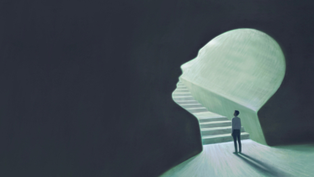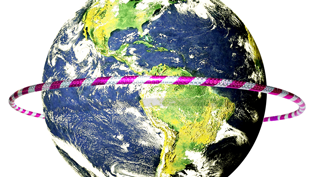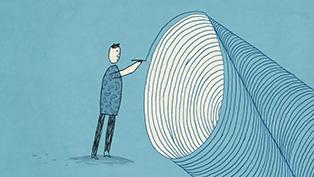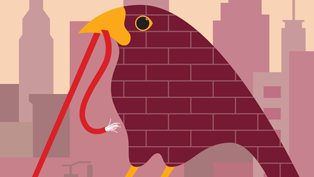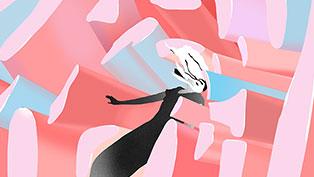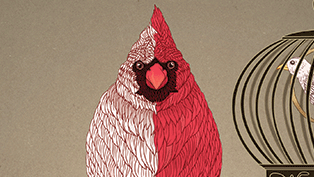

Channels
Tune in to Nautilus' deep dive portals


How Mathematicians Use Homology to Make Sense of Topology
by Kelsey Houston-Edwards


The Light Magic of Squid
by Martin Wallen


Scabs and Failure: Springboards for a History-Making Vaccine
by Robert Bazell


How Much Should Expectation Drive Science?
by Claudia Geib


The Doctor Will Sniff You Now
by Lina Zeldovich


The Problem in the Lab
by Mary Ellen Hannibal


Digging Deeper Into Holocaust History
by Virat Markandeya


On “Learning the Trees”
by Liz Craig-Olins


 The Best Burger Place Is a Lab
The Best Burger Place Is a Lab
by Thomas King


Yes, Life in the Fast Lane Kills You
by Philip Ball


 Dr. Robbert Dijkgraaf
Dr. Robbert Dijkgraaf
by Michael Segal
Popular on Nautilus
- Most Read
- Most Shared
-
1 Does Theranos Mark the Peak of the Silicon Valley Bubble?
John Carreyrou talks to Nautilus about the lessons of a $1 billion fraud.
BY Michael Segal -
2 The Smaller the Theater, the Faster the Music
Composer Philip Glass talks time with painter Fredericka Foster.
BY Philip Glass & Fredericka Foster -
3 What Time Feels Like When You’re Improvising
The neurology of flow states.
BY Heather Berlin -
4 A New View of Time
Introducing the Nautilus Time Project.
BY Beth Jacobs & Lee Smolin -
5 She’ll Text Me, She’ll Text Me Not
The science of waiting in modern courtship.
BY Aziz Ansari & Eric Klinenberg -
6 When Bad Things Happen in Slow Motion
Is there more to our experience of time than the foibles of memory?
BY Ivan Amato
-
1 Why Living in a Poor Neighborhood Can Change Your Biology
The sheer stress of an environment contributes to obesity and diabetes.
BY Andrew Curry -
2 Does Theranos Mark the Peak of the Silicon Valley Bubble?
John Carreyrou talks to Nautilus about the lessons of a $1 billion fraud.
BY Michael Segal -
3 The Smaller the Theater, the Faster the Music
Composer Philip Glass talks time with painter Fredericka Foster.
BY Philip Glass & Fredericka Foster -
4 What Time Feels Like When You’re Improvising
The neurology of flow states.
BY Heather Berlin -
5 When Bad Things Happen in Slow Motion
Is there more to our experience of time than the foibles of memory?
BY Ivan Amato -
6 We Need to Save Ignorance From AI
In an age of all-knowing algorithms, how do we choose not to know?
BY Christina Leuker & Wouter van den Bos
Facts So Romantic
Science has a powerful voice in today’s culture.
So what is it saying?
-
 Ideas
Ideas
How Maxwell’s Demon Continues to Startle Scientists
Reprinted with permission from Quanta Magazine’s Abstractions blog.The universe bets on disorder. Imagine, for example, dropping a thimbleful of red dye into a swimming pool. All of those…
Read More -
 Biology
Biology
Why We Love to Be Grossed Out
Nina Strohminger, perhaps not unlike many fans of raunchy comedies and horror flicks, is drawn to disgust. The University of Pennsylvania psychologist has written extensively on the feeling…
Read More -
 Ideas
Ideas
Do We Have Free Will? Maybe It Doesn't Matter
Belief is a special kind of human power. Agustin Fuentes, an anthropologist at the University of Notre Dame, eloquently claims as much in his recent book Why We Believe: Evolution and the…
Read More -
 Ideas
Ideas
Here’s How We’ll Know an AI Is Conscious
The Australian philosopher David Chalmers famously asked whether “philosophical zombies” are conceivable—people who behave like you and me yet lack subjective experience. It’s an…
Read More
Listen to Nautilus
NARRATED VERSIONS OF OUR STORIES
All Audio Articles-

 Biology
Biology
In the “Black Mayonnaise” of Brooklyn’s Gowanus Canal, Alien Life Is Being Born
By Tyler J. Kelley
-

 Ideas
Ideas
Here’s What We’ll Do in Space by 2116
By Emily Lakdawalla
-

 Culture
Culture
Why the Russians Decapitated Major Tom
By Roberto Kaz
Nautilus Prime
Get the full Nautilus digital experience.
Members Sign In


